-
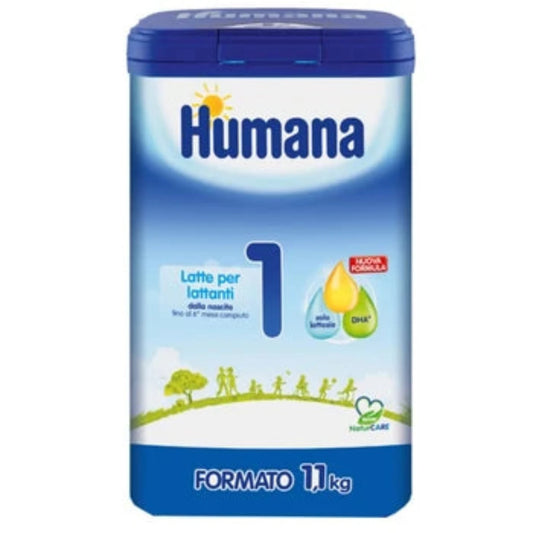 Latte In Polvere Probal 1: Conf...Sold outScopriVendor:HumanaLatte In Polvere Probal 1: Conf...Regular price €27,98Sale price €27,98 Regular priceUnit price perSold out
Latte In Polvere Probal 1: Conf...Sold outScopriVendor:HumanaLatte In Polvere Probal 1: Conf...Regular price €27,98Sale price €27,98 Regular priceUnit price perSold out -
 Latte In Polvere Probal 2: Conf...ScopriVendor:HumanaLatte In Polvere Probal 2: Conf...Regular price €22,90Sale price €22,90 Regular priceUnit price per
Latte In Polvere Probal 2: Conf...ScopriVendor:HumanaLatte In Polvere Probal 2: Conf...Regular price €22,90Sale price €22,90 Regular priceUnit price per -
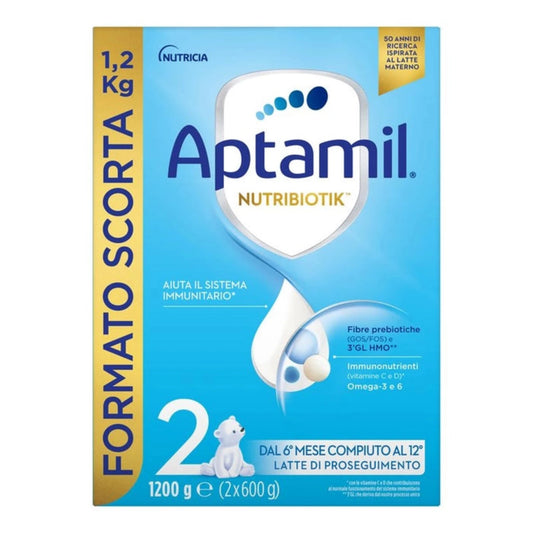 Latte In Polvere 2: Confezione ...ScopriVendor:AptamilLatte In Polvere 2: Confezione ...Regular price €27,49Sale price €27,49 Regular priceUnit price per
Latte In Polvere 2: Confezione ...ScopriVendor:AptamilLatte In Polvere 2: Confezione ...Regular price €27,49Sale price €27,49 Regular priceUnit price per€27,49 -
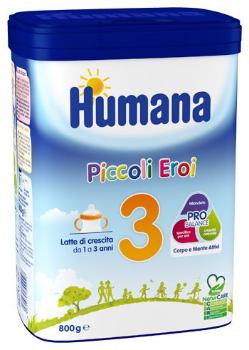 Latte Probal 3: Confezione 800 grScopriVendor:HumanaLatte Probal 3: Confezione 800 grRegular price €12,99Sale price €12,99 Regular priceUnit price per
Latte Probal 3: Confezione 800 grScopriVendor:HumanaLatte Probal 3: Confezione 800 grRegular price €12,99Sale price €12,99 Regular priceUnit price per -
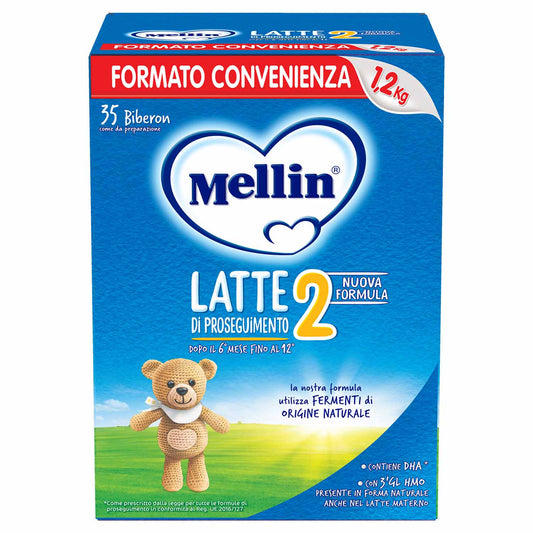 Mellin Milk 2 1200grScopriVendor:MellinMellin Milk 2 1200grRegular price €24,45Sale price €24,45 Regular priceUnit price per
Mellin Milk 2 1200grScopriVendor:MellinMellin Milk 2 1200grRegular price €24,45Sale price €24,45 Regular priceUnit price per€24,45 -
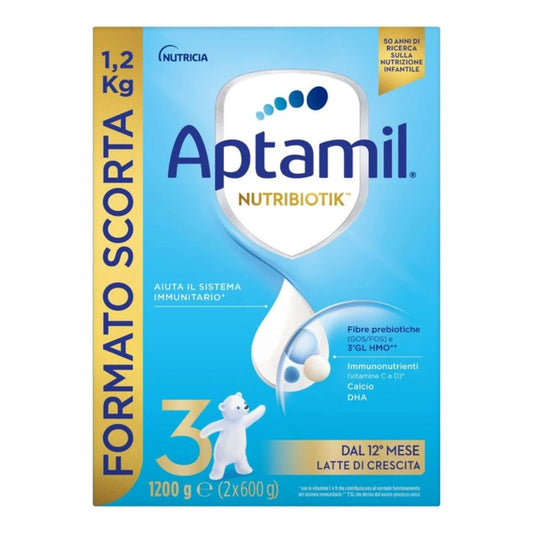 Latte In Polvere 3: Confezione ...ScopriVendor:AptamilLatte In Polvere 3: Confezione ...Regular price €21,85Sale price €21,85 Regular priceUnit price per
Latte In Polvere 3: Confezione ...ScopriVendor:AptamilLatte In Polvere 3: Confezione ...Regular price €21,85Sale price €21,85 Regular priceUnit price per€21,85 -
 Milk 2 powder 700grScopriVendor:NeolatteMilk 2 powder 700grRegular price €10,99Sale price €10,99 Regular priceUnit price per
Milk 2 powder 700grScopriVendor:NeolatteMilk 2 powder 700grRegular price €10,99Sale price €10,99 Regular priceUnit price per -
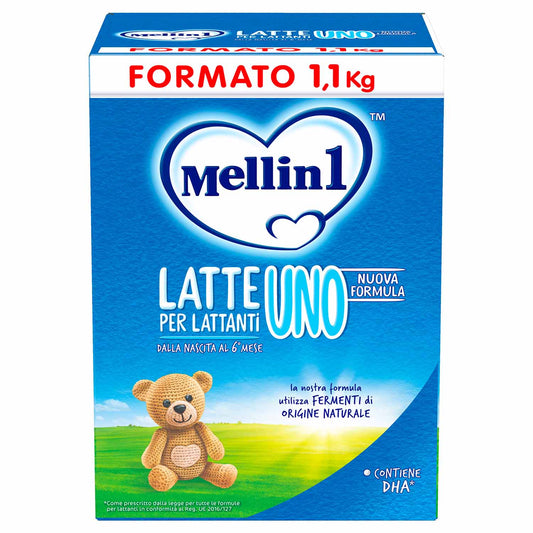 Mellin Milk 1 1100grScopriVendor:MellinMellin Milk 1 1100grRegular price €28,79Sale price €28,79 Regular priceUnit price per
Mellin Milk 1 1100grScopriVendor:MellinMellin Milk 1 1100grRegular price €28,79Sale price €28,79 Regular priceUnit price per€28,79 -
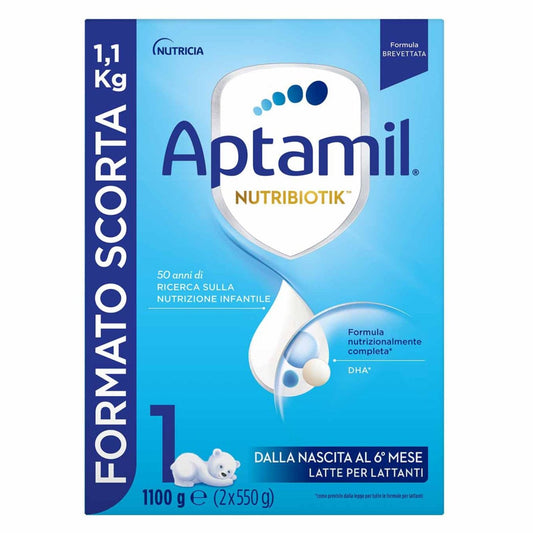 Latte In Polvere 1: Confezione ...ScopriVendor:AptamilLatte In Polvere 1: Confezione ...Regular price €31,45Sale price €31,45 Regular priceUnit price per
Latte In Polvere 1: Confezione ...ScopriVendor:AptamilLatte In Polvere 1: Confezione ...Regular price €31,45Sale price €31,45 Regular priceUnit price per€31,45 -
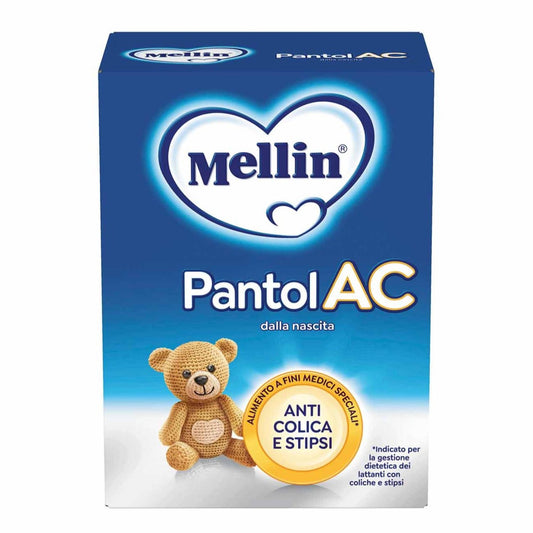 Pantolac milk powder 600 grScopriVendor:MellinPantolac milk powder 600 grRegular price €33,99Sale price €33,99 Regular priceUnit price per
Pantolac milk powder 600 grScopriVendor:MellinPantolac milk powder 600 grRegular price €33,99Sale price €33,99 Regular priceUnit price per€33,99 -
 Milk 3 powder 700grScopriVendor:NeolatteMilk 3 powder 700grRegular price €10,99Sale price €10,99 Regular priceUnit price per
Milk 3 powder 700grScopriVendor:NeolatteMilk 3 powder 700grRegular price €10,99Sale price €10,99 Regular priceUnit price per -
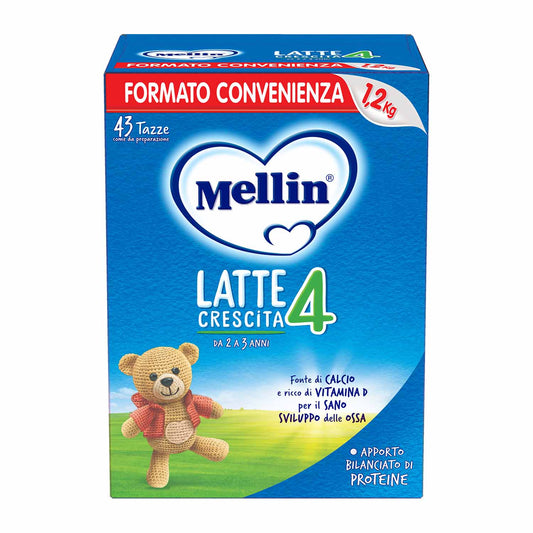 Mellin Milk 4 1200grScopriVendor:MellinMellin Milk 4 1200grRegular price €20,45Sale price €20,45 Regular priceUnit price per
Mellin Milk 4 1200grScopriVendor:MellinMellin Milk 4 1200grRegular price €20,45Sale price €20,45 Regular priceUnit price per€20,45 -
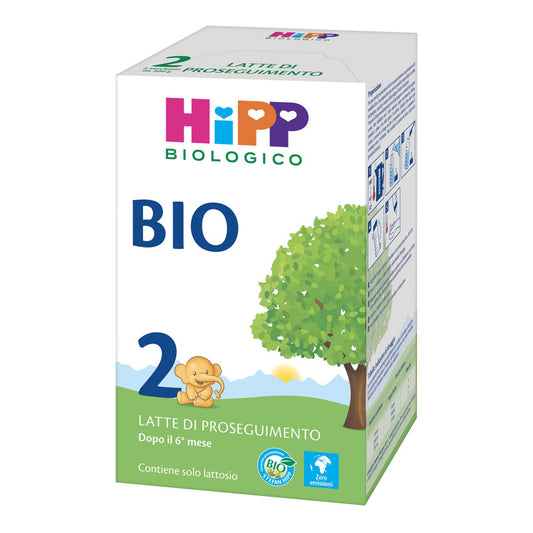 Hipp Organic Milk 2 600grScopriVendor:HippHipp Organic Milk 2 600grRegular price €17,45Sale price €17,45 Regular priceUnit price per
Hipp Organic Milk 2 600grScopriVendor:HippHipp Organic Milk 2 600grRegular price €17,45Sale price €17,45 Regular priceUnit price per€17,45 -
 Latte In Polvere Conformil: Con...ScopriVendor:AptamilLatte In Polvere Conformil: Con...Regular price €32,95Sale price €32,95 Regular priceUnit price per
Latte In Polvere Conformil: Con...ScopriVendor:AptamilLatte In Polvere Conformil: Con...Regular price €32,95Sale price €32,95 Regular priceUnit price per€32,95 -
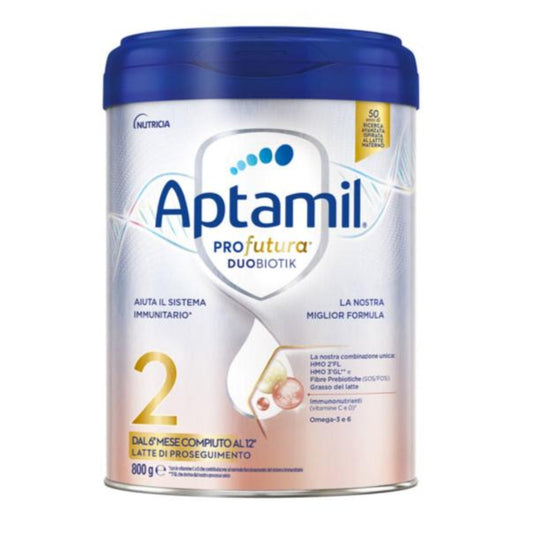 Profutura 2: Confezione 800g- 13%ScopriVendor:AptamilProfutura 2: Confezione 800gRegular price €23,99Sale price €23,99 Regular priceUnit price per
Profutura 2: Confezione 800g- 13%ScopriVendor:AptamilProfutura 2: Confezione 800gRegular price €23,99Sale price €23,99 Regular priceUnit price per€27,75- 13% -
 Infant Milk 1 Powder 600grScopriVendor:HippInfant Milk 1 Powder 600grRegular price €16,95Sale price €16,95 Regular priceUnit price per
Infant Milk 1 Powder 600grScopriVendor:HippInfant Milk 1 Powder 600grRegular price €16,95Sale price €16,95 Regular priceUnit price per€16,95 -
 Latte Sinelac In caso Di Rigurg...ScopriVendor:HumanaLatte Sinelac In caso Di Rigurg...Regular price €18,79Sale price €18,79 Regular priceUnit price per
Latte Sinelac In caso Di Rigurg...ScopriVendor:HumanaLatte Sinelac In caso Di Rigurg...Regular price €18,79Sale price €18,79 Regular priceUnit price per -
 Ar 1 Milk Powder 400 grScopriVendor:AptamilAr 1 Milk Powder 400 grRegular price €30,99Sale price €30,99 Regular priceUnit price per
Ar 1 Milk Powder 400 grScopriVendor:AptamilAr 1 Milk Powder 400 grRegular price €30,99Sale price €30,99 Regular priceUnit price per€30,99 -
 Latte In Polvere Allernova Pro:...ScopriVendor:NovalacLatte In Polvere Allernova Pro:...Regular price €28,49Sale price €28,49 Regular priceUnit price per
Latte In Polvere Allernova Pro:...ScopriVendor:NovalacLatte In Polvere Allernova Pro:...Regular price €28,49Sale price €28,49 Regular priceUnit price per -
 Latte In Polvere 4: Confezione ...ScopriVendor:AptamilLatte In Polvere 4: Confezione ...Regular price €21,85Sale price €21,85 Regular priceUnit price per
Latte In Polvere 4: Confezione ...ScopriVendor:AptamilLatte In Polvere 4: Confezione ...Regular price €21,85Sale price €21,85 Regular priceUnit price per -
 Mellin Milk Ar 1 400grScopriVendor:MellinMellin Milk Ar 1 400grRegular price €31,99Sale price €31,99 Regular priceUnit price per
Mellin Milk Ar 1 400grScopriVendor:MellinMellin Milk Ar 1 400grRegular price €31,99Sale price €31,99 Regular priceUnit price per -
 Latte In Polvere Nidina 1: Conf...ScopriVendor:NestlèLatte In Polvere Nidina 1: Conf...Regular price €27,09Sale price €27,09 Regular priceUnit price per
Latte In Polvere Nidina 1: Conf...ScopriVendor:NestlèLatte In Polvere Nidina 1: Conf...Regular price €27,09Sale price €27,09 Regular priceUnit price per€27,09 -
 Latte In Polvere Nidina 1: Conf...ScopriVendor:NestlèLatte In Polvere Nidina 1: Conf...Regular price €19,89Sale price €19,89 Regular priceUnit price per
Latte In Polvere Nidina 1: Conf...ScopriVendor:NestlèLatte In Polvere Nidina 1: Conf...Regular price €19,89Sale price €19,89 Regular priceUnit price per€19,89 -
 Latte Profutura 3: Confezione 800g- 4%ScopriVendor:AptamilLatte Profutura 3: Confezione 800gRegular price €21,99Sale price €21,99 Regular priceUnit price per
Latte Profutura 3: Confezione 800g- 4%ScopriVendor:AptamilLatte Profutura 3: Confezione 800gRegular price €21,99Sale price €21,99 Regular priceUnit price per€22,99- 4%
What is powdered milk used for?
The composition of the artificial milk is formulated on the basis of the nutritional needs of the newborn first and then of the infant, in order to ensure correct development and balanced body growth.
What are the types of powdered milk:
It is a product comprising three different types:
– baby milk or starting milk , which is used for the nutrition of the newborn in the first weeks of life and up to the fourth or fifth month; it is an extremely digestible food rich in whey proteins, enriched with oligosaccharides, fats of vegetable origin, vitamins and mineral salts;
– follow-on milk , which is used from the fifth month onwards, containing sucrose and glucose, and a concentration of proteins and lipids rather similar to that of cow's milk, and is richer in iron; it is used for children aged six to eleven months;
– growing up milk , used from twelve months onwards, consisting of a particular type of cow's milk added with vitamins and mineral salts.
What is the best baby milk?
The best infant formula is the one with a specific formula aimed at the needs of the individual infant; similarly to mother's milk, its composition must continuously change to adapt to the nutritional needs of the newborn. For this reason, its composition changes in relation to the different age groups of the child.
The regulations in force which regulate the production of milk for babies are particularly restrictive since they allow the use of a limited number of substances: for this reason the differences between the various manufacturers are minimal.
It is usually recommended to change the type of infant formula in relation to the age of the infant, as each period of life requires a different nutritional intake depending on the infant's changing metabolic needs.
If problems of digestive intolerance towards artificial milk arise, it is always possible to change the formulation after consulting with your pediatrician.

One of our specialists is always at your complete disposal!


























